Black History Month
Dr. Regina Lewis Is The Changemaker You Need To Meet
One of the most common criticisms of the fitness and wellness industries—and the communities they welcome—is that they are largely white. And while there is certainly a lot of truth to this, we think it overlooks an important fact: Diverse groups and individuals have participated in and played a major role in shaping fitness and wellness—both throughout history and in the present.
In honor of Black History Month, we’re celebrating Black voices throughout February, both in the larger fitness and wellness space and right here in our own barre3 community. Today, we’re bringing you a conversation with Dr. Regina Lewis. A physician, Director of the OSU Women’s Health Center, professor, mission-trip leader, wife, and mother, Dr. Lewis somehow manages to find time to maintain a regular barre3 practice. Read on to learn about how she’s helping teen moms, why she packs her barre3 props for her mission trips, and what being on the front lines during Covid this year has taught her.
B3 MAGAZINE: You practice family medicine and obstetrics. What made you decide to focus on these areas of medicine?
DR. LEWIS: I was always interested in adolescents, especially in adolescent pregnancy. That’s when people write you off. You get the message that if you get pregnant as a teenager, you can’t dream anymore—but it’s exactly when you need to carry out your dreams. I wanted to help teenage moms, so obstetrics made sense, but I knew if I specialized in just that, I’d see them through their pregnancy and then only once a year for their annual exam. By specializing in family medicine, not only can I take care of the babies, but I can also take care of the moms on an ongoing basis.
B3 MAGAZINE: Do you feel like you’re able to have a more lasting impact this way?
DR. LEWIS: I do. Our practice is in a low-income area, right near some housing developments, and we do see a number of teenage moms. We really develop relationships with our patients. We set them up for high expectations. We have conversations like, “Ok, you’re pregnant. What’s our next step? Now you have another mouth to feed; let’s figure out how you can do that.”
B3 MAGAZINE: It sounds like you’re part doctor, part therapist, part social worker.
DR. LEWIS: That’s pretty much it! Sometimes if we know a mom is struggling, we’ll put together a little basket for them, or help them with some diapers.
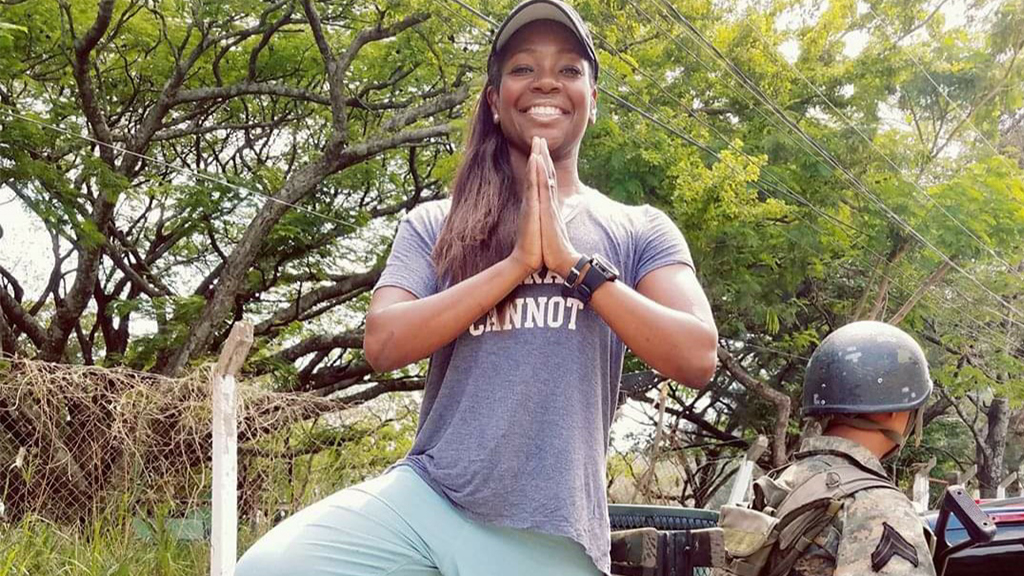
B3 MAGAZINE: And your goodwill doesn’t stop there. You also go on regular mission trips to bring medical care to underserved communities abroad. Can you tell us a little about that?
DR. LEWIS: I’m one of the faculty members at Oklahoma State University, and we created a program for graduate and medical students that allows them to add mission work as part of their schooling. We often go to Uganda, where we work with a woman named Sister Rosemary, who takes in women who were rejected by their families after the war there because they were sexually abused. She created a school where these women can learn how to cook and sew, and how to be administrative assistants.
We’ve also gone to Malawi, to Guatemala, to Greece, where we worked with refugees. These trips give me perspective. You’ll see people living in huts made of straw and dirt, and they’re happy. It reminds me to appreciate the simplicity of life—and it reminds me how much I have.
B3 MAGAZINE: You have so much on your plate, and yet you still find time for barre3. How did you first discover the workout?
DR. LEWIS: Growing up, I was a gymnast, and then later a cheerleader. All that jumping and high-impact exercise over the years had given me low-back pain, so I was looking for something that would help it—and it needed to be exercise, because I don’t like to take anything beyond Tylenol or Ibuprofen for pain. I first tried another barre studio, but it wasn’t right for me—it actually made my back pain worse. The barre3 studio was only a half mile down the street from the other studio, so when I passed it I decided to give it a try.
B3 MAGAZINE: What did you think of that first class?
DR. LEWIS: Honestly, going in I was a little intimidated. I was worried about my back since the only other barre class I had taken had made the pain worse. But at barre3, the owner and instructor were so encouraging. They made me feel so welcome, so I felt a little optimistic.
Of course, during that first class, I thought I was going to die a couple of times! When they said “hold,” I thought, “my legs are going to fall off.” I didn’t go back right away, but eventually I went back and started doing a couple of classes in a week. I noticed when I didn’t go to class, my back pain would get worse. I started doing about three days a week, and sometimes I was doing five days a week. Every time I’d stop going, even for just a bit, I could definitely tell because my back pain would come back.
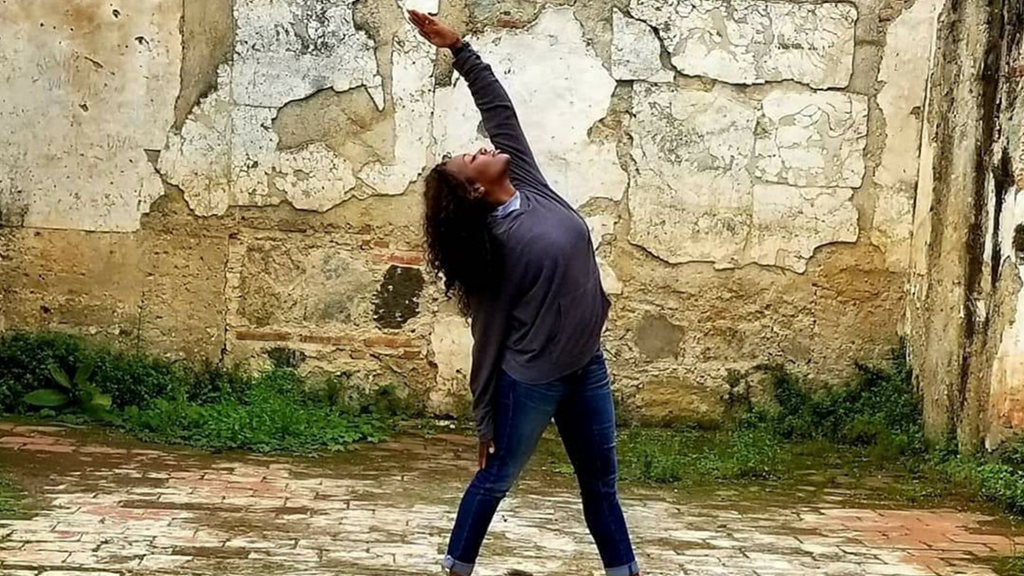
B3 MAGAZINE: At one point, you wrote a note to your studio manager saying “barre3 has been such a lifesaver.” Do you remember what made you want to write that?
DR. LEWIS: At that time, my husband needed a kidney transplant, I was working full time, and we had two kids at home. Barre3 became my self-care. I needed that deposit in order to show up in the rest of my life. That one hour was my only “me” time throughout the day.
For me, yes it’s about the exercise, the relief from back pain, and the mental stamina, but it’s also the instructor’s message—that thing that carries me through the rest of the day. I noticed sometimes if I was giving a talk or speaking at a graduation, I would find myself quoting different things instructors said in class. All those self-love statements really resonated with me. I love that with barre3, it’s never about image. It’s about loving yourself as you are, not as what you think you should be. Sometimes in class, I’d notice some med students were there, and I was always so glad. Once I secretly sponsored a med student’s membership because I wanted her to be able to keep going.
B3 MAGAZINE: That is so generous!
DR. LEWIS: I feel like, if you can find something that helps, stay with it. I just love the philosophy behind barre3, and I think it’s so important.
For me, it’s also important that no matter who you are, you can see yourself represented at barre3, whether it’s in an advertisement, an instructor, anywhere. It feels good to see all colors and all sizes. Everyone is loved the same. That has inspired me even more. I feel good knowing that my money is going to a company where we’re all included.
B3 MAGAZINE: I hear you have a barre3 video you take with you on these mission trips in case you don’t have access to wifi.
DR. LEWIS: Yes, I take barre3 with me everywhere! I was able to save one of the barre3 online videos on my cell phone, so I do it on trips when I don’t have internet access. My med students are always surprised when they see that I’ve packed my yoga mat, my barre3 ball, my weights, and my bands—all in my carry-on because we use our suitcases for medical supplies. I tell them I’m not doing it to look good; it’s about how I feel my body. And whenever I’m on a trip I always make sure to do a barre3 pose and post it.
B3 MAGAZINE: As a physician, you’ve been on the front lines for close to a year now (THANK YOU!). How have you been doing?
DR. LEWIS: When Covid hit, everything changed. My husband got a kidney transplant—something good that happened during covid! This was great news, but the medications he was on to make sure he didn’t reject his kidney meant that he was even more immunocompromised than before. Some days I was taking three showers a day to make sure I wasn’t bringing any germs home from work. Then in October our case numbers in Oklahoma started going up, and with my husband at home and my patients at work, it just seemed too risky to continue going to the studio.
I noticed my anxiety was getting worse, and I got into counseling. My counselor said, “You’ve told me how much better you feel when you’re doing barre3. You have to start back with them again.” So I started doing livestream classes from my local studio. I did the January Challenge and it really helped me. It feels good to know the instructors, and I love seeing the other people in class—even if it’s just through the computer.
B3 MAGAZINE: Sometimes, the most challenging circumstances teach us the most important lessons. Is there anything you’ve learned from this time that you hope to carry with you?
DR. LEWIS: I feel like Covid has shown us what’s really important. More than ever this year, we’ve seen that our time here is short. There’s no time to buy into this ideal of what women “should” look like. We have to learn just to be happy that we’re here today. This pandemic has shown us that not everyone gets that chance. Do I feel good? Do I feel healthy? How can I take what I need from this class and use it today? Those are the important things, the things I want to focus on.
Thank you so much, Dr. Lewis, for sharing your story with us! Start your barre3 journey today by finding your local studio or try 15 days of barre3 online, totally free.
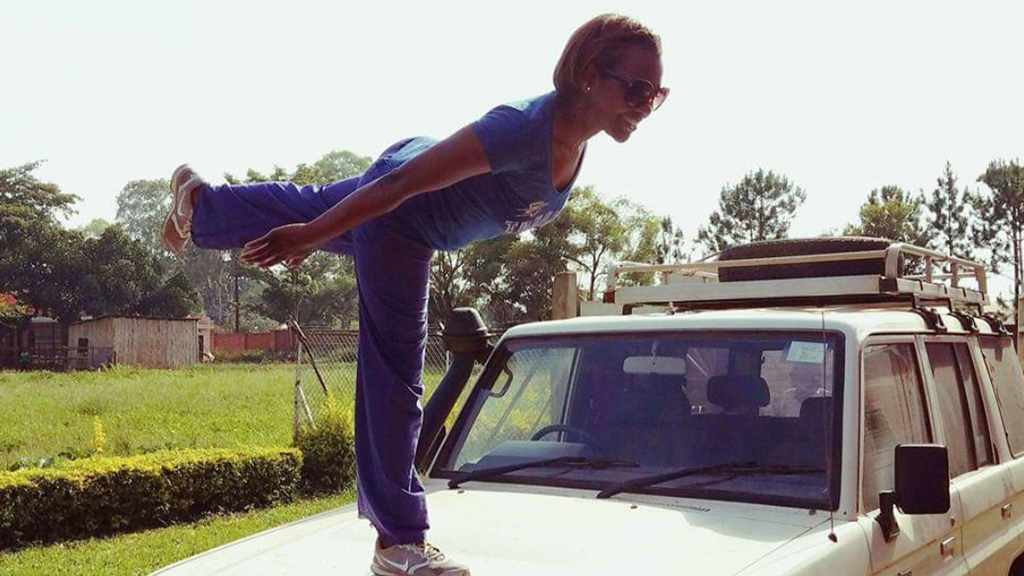
One of the most common criticisms of the fitness and wellness industries—and the communities they welcome—is that they are largely white. And while there is certainly a lot of truth to this, we think it overlooks an important fact: Diverse groups and individuals have participated in and played a major role in shaping fitness and wellness—both throughout history and in the present.
In honor of Black History Month, we’re celebrating Black voices throughout February, both in the larger fitness and wellness space and right here in our own barre3 community. Today, we’re bringing you a conversation with Dr. Regina Lewis. A physician, Director of the OSU Women’s Health Center, professor, mission-trip leader, wife, and mother, Dr. Lewis somehow manages to find time to maintain a regular barre3 practice. Read on to learn about how she’s helping teen moms, why she packs her barre3 props for her mission trips, and what being on the front lines during Covid this year has taught her.
B3 MAGAZINE: You practice family medicine and obstetrics. What made you decide to focus on these areas of medicine?
DR. LEWIS: I was always interested in adolescents, especially in adolescent pregnancy. That’s when people write you off. You get the message that if you get pregnant as a teenager, you can’t dream anymore—but it’s exactly when you need to carry out your dreams. I wanted to help teenage moms, so obstetrics made sense, but I knew if I specialized in just that, I’d see them through their pregnancy and then only once a year for their annual exam. By specializing in family medicine, not only can I take care of the babies, but I can also take care of the moms on an ongoing basis.
B3 MAGAZINE: Do you feel like you’re able to have a more lasting impact this way?
DR. LEWIS: I do. Our practice is in a low-income area, right near some housing developments, and we do see a number of teenage moms. We really develop relationships with our patients. We set them up for high expectations. We have conversations like, “Ok, you’re pregnant. What’s our next step? Now you have another mouth to feed; let’s figure out how you can do that.”
B3 MAGAZINE: It sounds like you’re part doctor, part therapist, part social worker.
DR. LEWIS: That’s pretty much it! Sometimes if we know a mom is struggling, we’ll put together a little basket for them, or help them with some diapers.

B3 MAGAZINE: And your goodwill doesn’t stop there. You also go on regular mission trips to bring medical care to underserved communities abroad. Can you tell us a little about that?
DR. LEWIS: I’m one of the faculty members at Oklahoma State University, and we created a program for graduate and medical students that allows them to add mission work as part of their schooling. We often go to Uganda, where we work with a woman named Sister Rosemary, who takes in women who were rejected by their families after the war there because they were sexually abused. She created a school where these women can learn how to cook and sew, and how to be administrative assistants.
We’ve also gone to Malawi, to Guatemala, to Greece, where we worked with refugees. These trips give me perspective. You’ll see people living in huts made of straw and dirt, and they’re happy. It reminds me to appreciate the simplicity of life—and it reminds me how much I have.
B3 MAGAZINE: You have so much on your plate, and yet you still find time for barre3. How did you first discover the workout?
DR. LEWIS: Growing up, I was a gymnast, and then later a cheerleader. All that jumping and high-impact exercise over the years had given me low-back pain, so I was looking for something that would help it—and it needed to be exercise, because I don’t like to take anything beyond Tylenol or Ibuprofen for pain. I first tried another barre studio, but it wasn’t right for me—it actually made my back pain worse. The barre3 studio was only a half mile down the street from the other studio, so when I passed it I decided to give it a try.
B3 MAGAZINE: What did you think of that first class?
DR. LEWIS: Honestly, going in I was a little intimidated. I was worried about my back since the only other barre class I had taken had made the pain worse. But at barre3, the owner and instructor were so encouraging. They made me feel so welcome, so I felt a little optimistic.
Of course, during that first class, I thought I was going to die a couple of times! When they said “hold,” I thought, “my legs are going to fall off.” I didn’t go back right away, but eventually I went back and started doing a couple of classes in a week. I noticed when I didn’t go to class, my back pain would get worse. I started doing about three days a week, and sometimes I was doing five days a week. Every time I’d stop going, even for just a bit, I could definitely tell because my back pain would come back.

B3 MAGAZINE: At one point, you wrote a note to your studio manager saying “barre3 has been such a lifesaver.” Do you remember what made you want to write that?
DR. LEWIS: At that time, my husband needed a kidney transplant, I was working full time, and we had two kids at home. Barre3 became my self-care. I needed that deposit in order to show up in the rest of my life. That one hour was my only “me” time throughout the day.
For me, yes it’s about the exercise, the relief from back pain, and the mental stamina, but it’s also the instructor’s message—that thing that carries me through the rest of the day. I noticed sometimes if I was giving a talk or speaking at a graduation, I would find myself quoting different things instructors said in class. All those self-love statements really resonated with me. I love that with barre3, it’s never about image. It’s about loving yourself as you are, not as what you think you should be. Sometimes in class, I’d notice some med students were there, and I was always so glad. Once I secretly sponsored a med student’s membership because I wanted her to be able to keep going.
B3 MAGAZINE: That is so generous!
DR. LEWIS: I feel like, if you can find something that helps, stay with it. I just love the philosophy behind barre3, and I think it’s so important.
For me, it’s also important that no matter who you are, you can see yourself represented at barre3, whether it’s in an advertisement, an instructor, anywhere. It feels good to see all colors and all sizes. Everyone is loved the same. That has inspired me even more. I feel good knowing that my money is going to a company where we’re all included.
B3 MAGAZINE: I hear you have a barre3 video you take with you on these mission trips in case you don’t have access to wifi.
DR. LEWIS: Yes, I take barre3 with me everywhere! I was able to save one of the barre3 online videos on my cell phone, so I do it on trips when I don’t have internet access. My med students are always surprised when they see that I’ve packed my yoga mat, my barre3 ball, my weights, and my bands—all in my carry-on because we use our suitcases for medical supplies. I tell them I’m not doing it to look good; it’s about how I feel my body. And whenever I’m on a trip I always make sure to do a barre3 pose and post it.
B3 MAGAZINE: As a physician, you’ve been on the front lines for close to a year now (THANK YOU!). How have you been doing?
DR. LEWIS: When Covid hit, everything changed. My husband got a kidney transplant—something good that happened during covid! This was great news, but the medications he was on to make sure he didn’t reject his kidney meant that he was even more immunocompromised than before. Some days I was taking three showers a day to make sure I wasn’t bringing any germs home from work. Then in October our case numbers in Oklahoma started going up, and with my husband at home and my patients at work, it just seemed too risky to continue going to the studio.
I noticed my anxiety was getting worse, and I got into counseling. My counselor said, “You’ve told me how much better you feel when you’re doing barre3. You have to start back with them again.” So I started doing livestream classes from my local studio. I did the January Challenge and it really helped me. It feels good to know the instructors, and I love seeing the other people in class—even if it’s just through the computer.
B3 MAGAZINE: Sometimes, the most challenging circumstances teach us the most important lessons. Is there anything you’ve learned from this time that you hope to carry with you?
DR. LEWIS: I feel like Covid has shown us what’s really important. More than ever this year, we’ve seen that our time here is short. There’s no time to buy into this ideal of what women “should” look like. We have to learn just to be happy that we’re here today. This pandemic has shown us that not everyone gets that chance. Do I feel good? Do I feel healthy? How can I take what I need from this class and use it today? Those are the important things, the things I want to focus on.
Thank you so much, Dr. Lewis, for sharing your story with us! Start your barre3 journey today by finding your local studio or try 15 days of barre3 online, totally free.






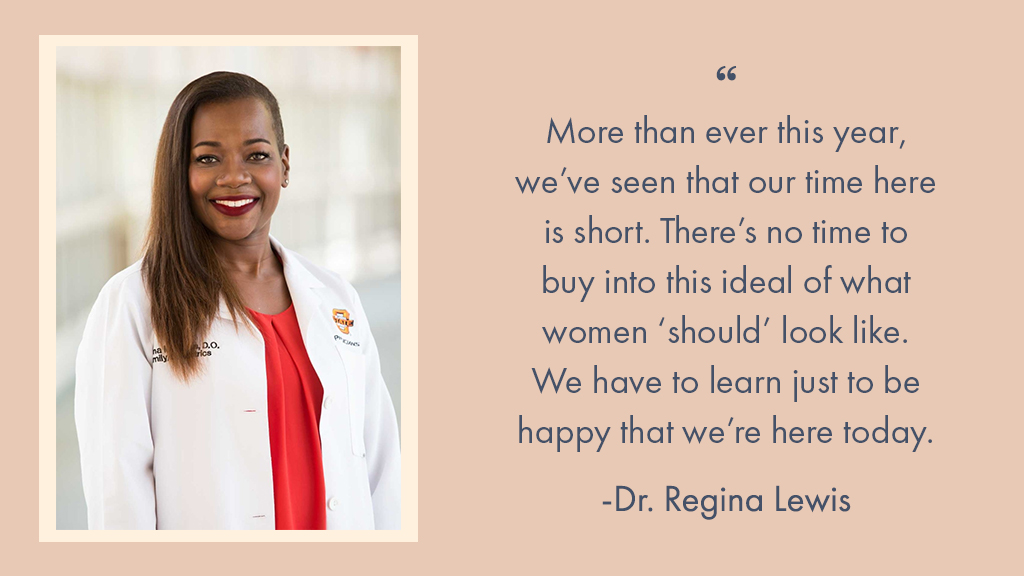
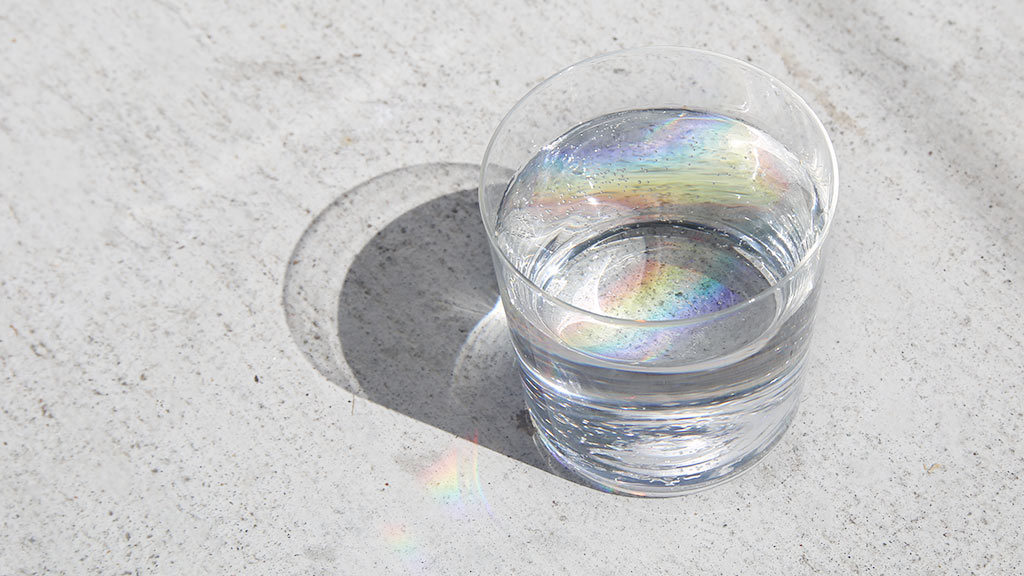
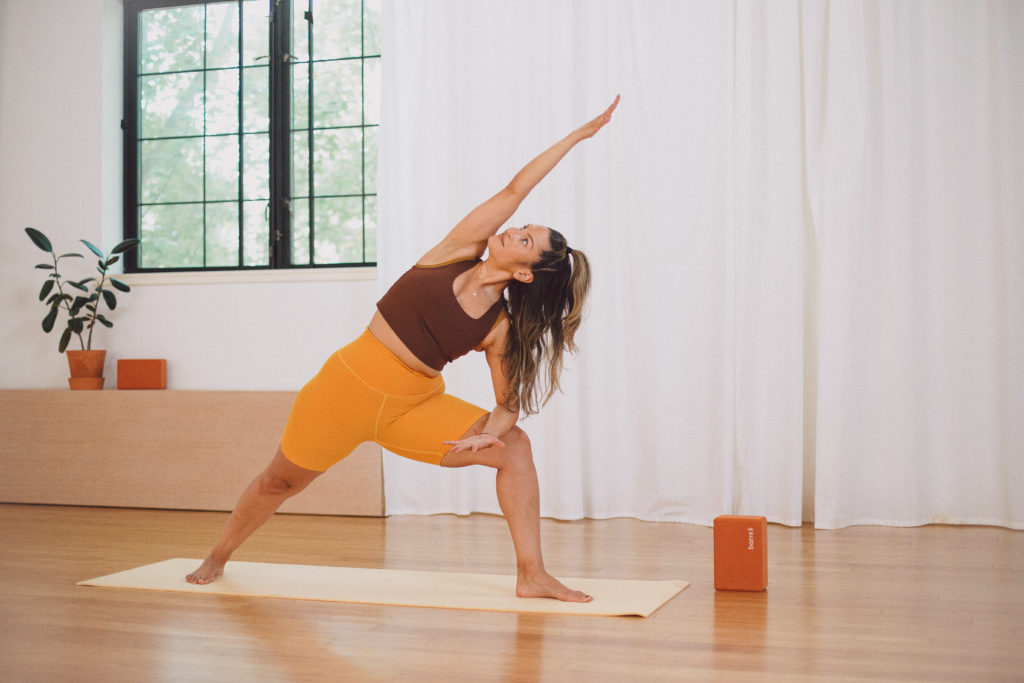
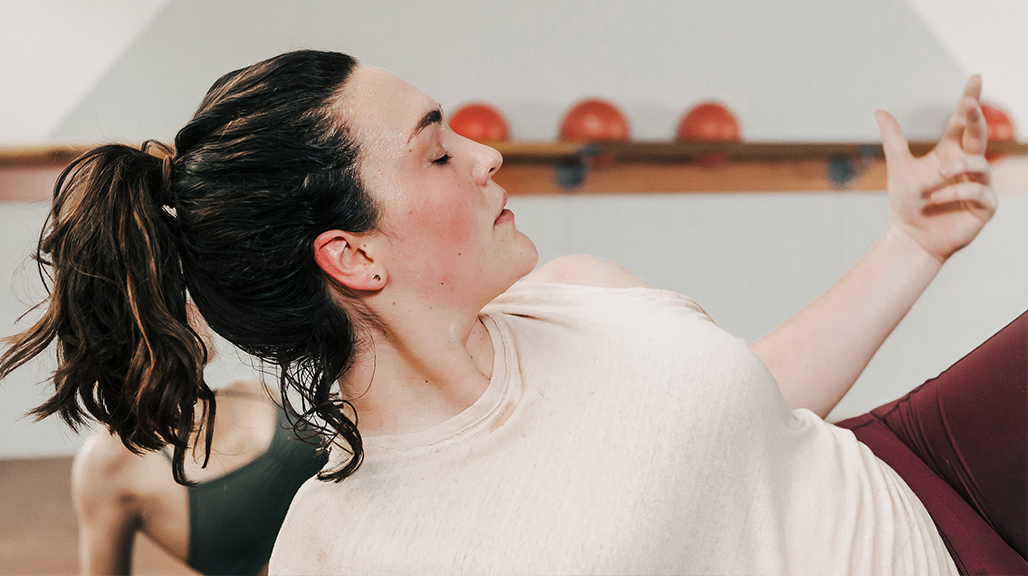
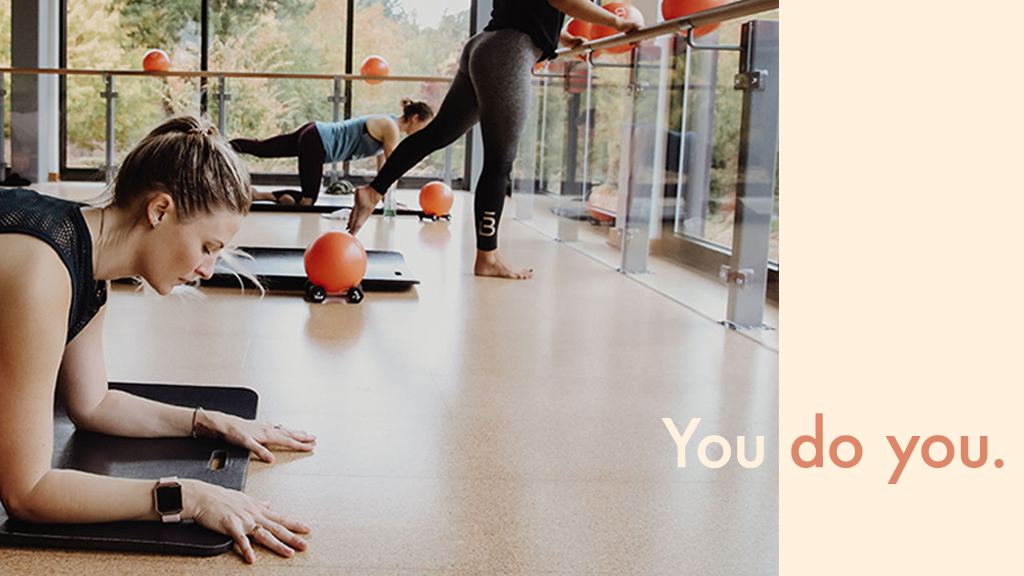



0 people have left a comment. Join the conversation!
View Comments